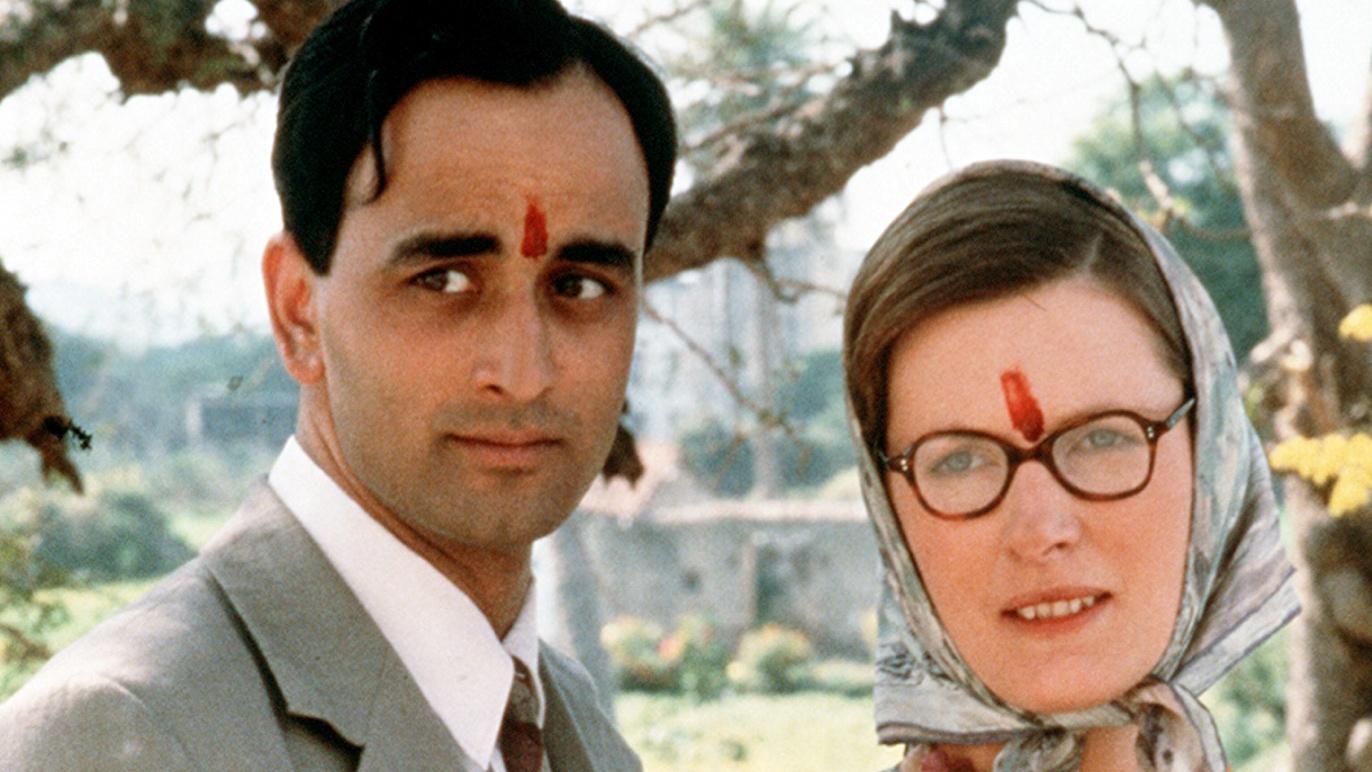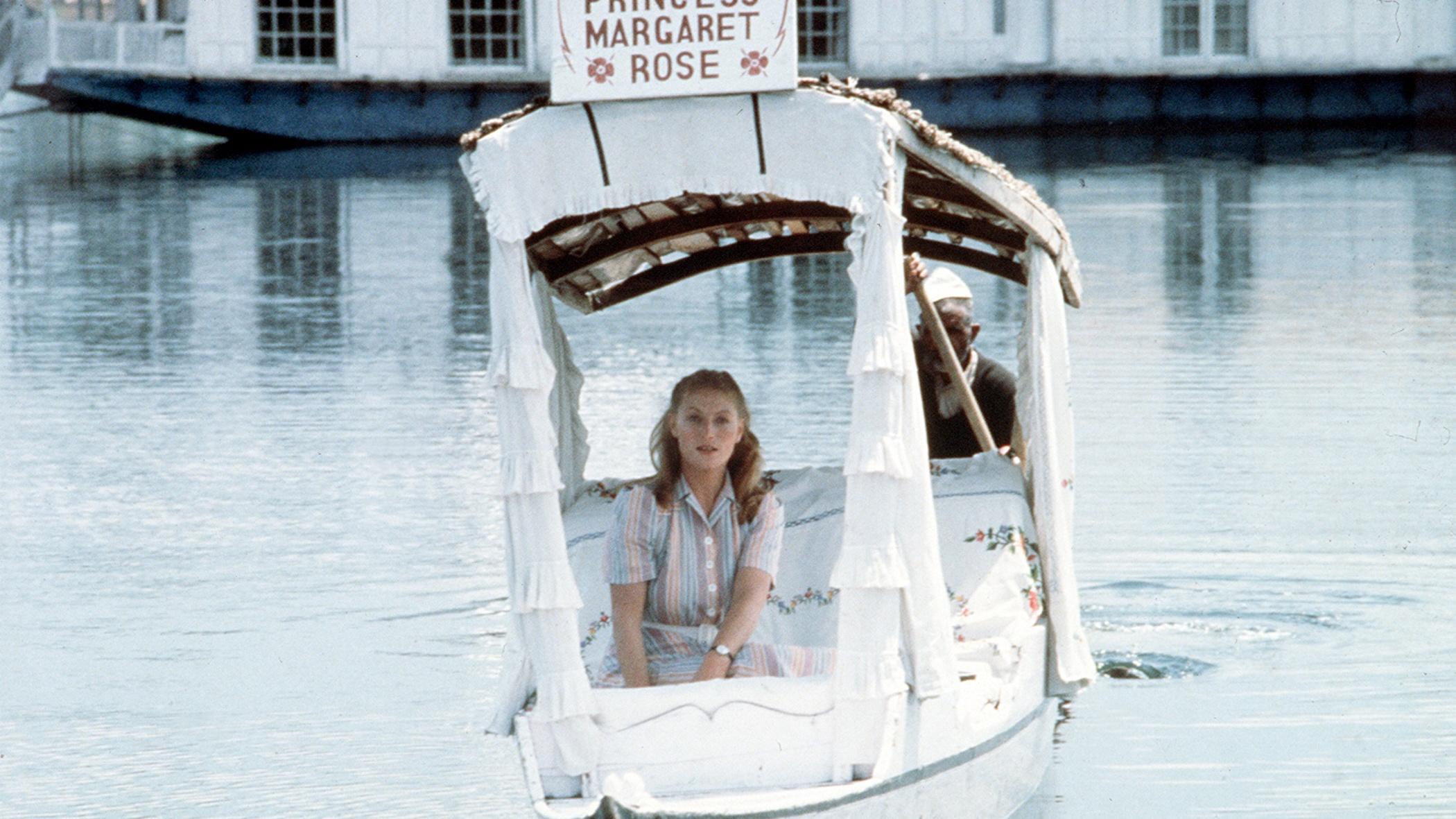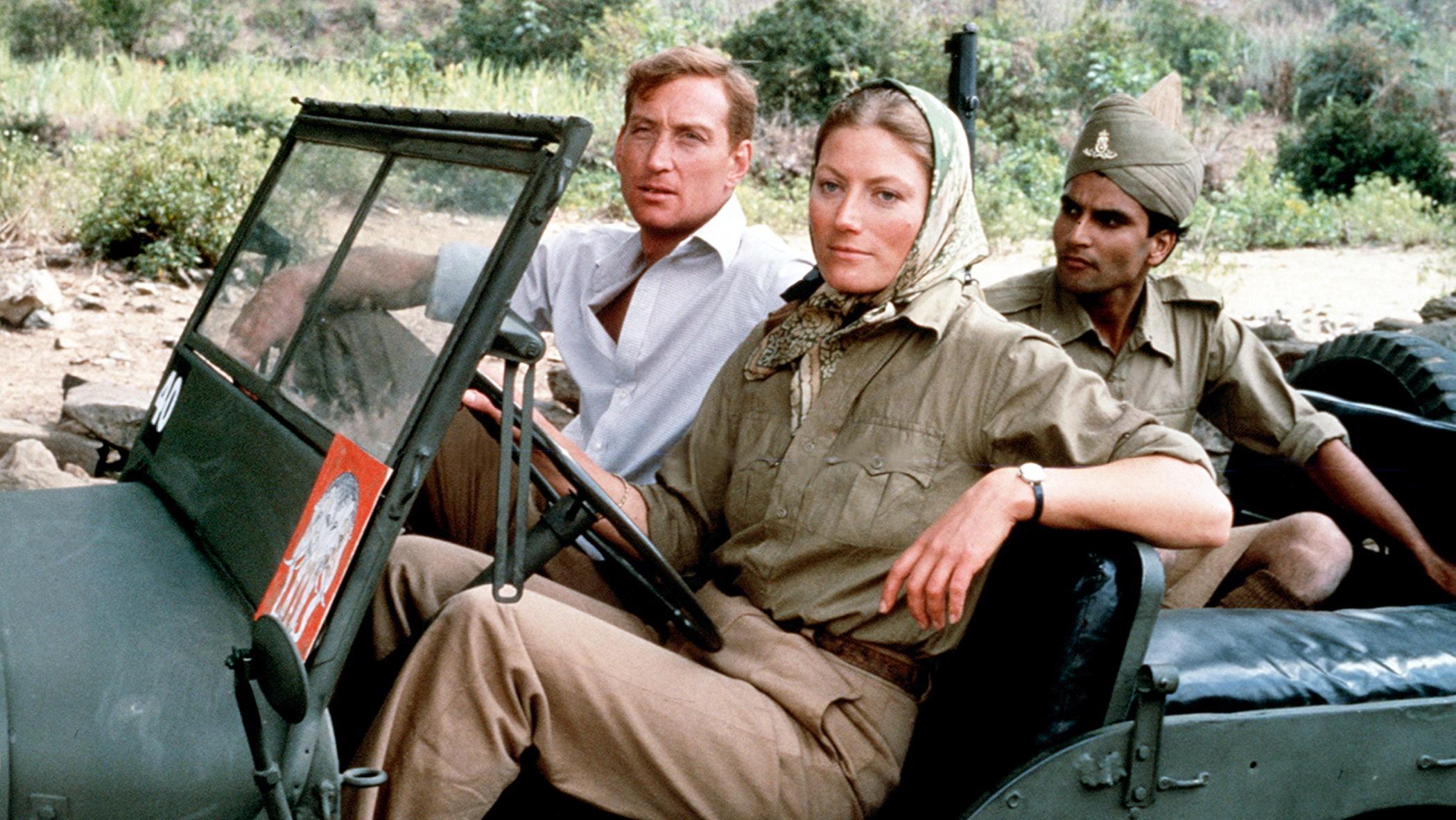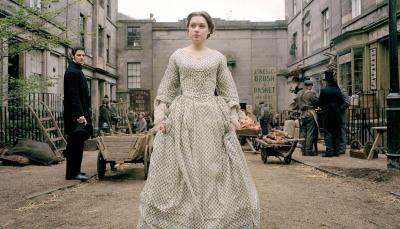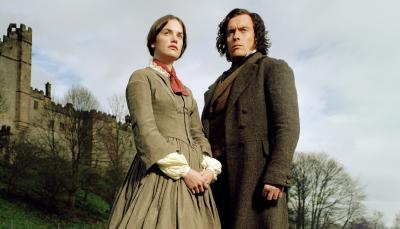Classics Revisited: They Really Don't Make Period Dramas Like 'The Jewel In the Crown' Anymore
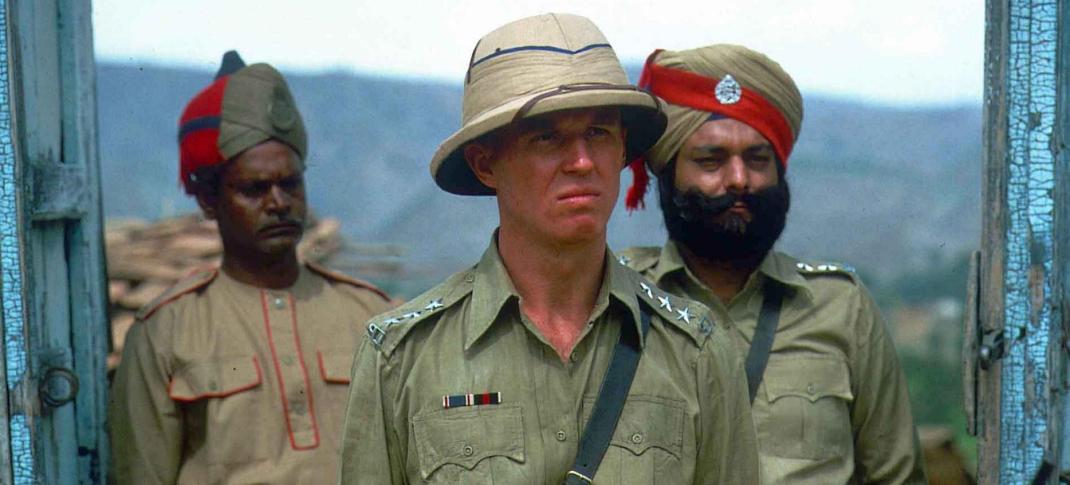
Tim Pigott-Smith in "The Jewel in the Crown"
(Photo: Granada Television)
When considering the basic idea of a period drama, there are a few obvious examples that pretty much everyone cites as the pinnacle of the genre, series which stand as the ultimate ideal of what these sorts of historical stories are supposed to be and do. The original Brideshead Revisited. Upstairs Downstairs.The 1996 Pride and Prejudice with Colin Firth. Downton Abbey, for a slightly more recent example. And The Jewel in the Crown, a sprawling fourteen-hour adaptation of British author Paul Scott's Raj Quartet series of novels.
The story of the final days of British occupation in India, the series begins amid World War II and concludes with independence and the separation of India and Pakistan (known as The Partition) in 1947. Sweeping in both size and scope, it follows the stories of almost a dozen main characters. It wrestles with complex themes of exploration and violence, imperialism and oppression, guilt, nostalgia, and more. It doesn't even introduce the figure who could reasonably be considered its lead until somewhere around episode five, and its primary antagonist somehow gets more screen time than any other character on the show.
The series boasts limited romance — the show's central love story occurs in roughly two episodes — and features a ton of supporting character sidequests that aren't necessarily all that important to the main story it's telling and displays an unusual willingness to let itself be ugly and uncomfortable in ways we don't often see in this genre. What's perhaps most important, however, is that The Jewel in the Crown isn't especially interested in painting the decline of the Raj as a tragedy or looking back on its heyday through rose-colored glasses. The series is remarkably clear about what a disaster British rule has been — both for India and England.
The inciting incident of much of the story is a relationship between an unconventional young Englishwoman named Daphne Manners (Susan Wooldridge) and Hari Kumar (Art Malik), an Indian journalist raised in England by a wealthy father. Forced to return to India when his father dies destitute, Hari feels lost and out of place in the homeland he barely knows. (As the show puts it, he's too British for the Indians and too Indian for the British.) Daphne, for her part, is fascinated by India, and her egalitarian views about life in Mayapore and its people put her at odds with many of her British peers.
The two hit it off, and their brief, tragic romance is one of the central narrative linchpins around which the rest of the series turns. Given how prominent the fallout from Hari and Daphne's relationship is to the rest of the episodes that follow, it's almost shocking how little of The Jewel in the Crown's gargantuan screentime is dedicated to their love story. They appear in just two episodes together, which do feature some of the series' most romantic moments. But they also see Daphne gang-raped by a pack of strangers and Hari summarily beaten and thrown into prison after being accused of the crime.
She dies in childbirth offscreen, and while he appears in several later episodes as a sort of through-line character here and there, it's almost always as an afterthought. Yet, the incident in the Bhibighar Gardens becomes an awful sort of cautionary tale and/or strange object of fascination for several other characters throughout the rest of the series, a bizarre reminder of the best and worst humanity is capable of.
The assault in the Bhibighar Gardens casts a long shadow over The Jewel in the Crown. Police officer Ronald Merrick (Tim Piggott-Smith), who blames Hari for the fact that Daphne romantically rebuffed him, uses her attack to punish someone he not only sees as a rival but who he resents for the posh British education and status he was denied. Merrick, a working-class man using his foreign posting to climb out of his humble origins, ultimately becomes the series' most consistent throughline character, a sort of human stand-in for the uncomfortable ways oppressing a nation has twisted the souls involved in keeping their boots firmly on India's neck.
Piggot-Smith does wonders with a character who seems to grow darker and more villainous throughout the series, deftly balancing Merrick's most revolting traits (strident racism, a penchant for violence, a knack for overt manipulation of systems to his benefit) with a strange pitiable sorrow. This is a man who is deeply uncomfortable in his skin. His deeply ingrained sense of class inferiority and homosexual urges lead to self-loathing he only can excise by taking it out on others, hating himself as much, if not more, than he hates those he insists are his inferiors. He often seems as much a victim of his homeland (and its strict, unspoken caste system) as the country he's been sent to control.
That Merrick should be the show's most consistent throughline character — after Hari's arrest, he joins the army and is assigned to a regiment with ties to the characters who will become central to the story beyond Maypore — is something of a strange choice, but one that reflects the story's willingness to deconstruct the larger story of the Raj and British influence and to confront the corruption and violence at its heart.
Daphe's illegitimate child becomes how the show shifts focus. The baby, taken to live with Daphne's great-aunt Lady Manners (Rachel Kempson) in Srinagar, is less of a plot point and more of a device by which to introduce us to the series' true main character, Sarah Layton (Geraldine James). A young Englishwoman brought up in India; she now lives with her family in Rampur. Her father, a military colonel, is in a POW camp, her mother, Mildred (Judy Parfitt), is a cruel alcoholic, and her sister, Susan (Wendy Morgan), is preparing to marry a man, Teddie Bingham (Nicholas Farrell), who just so happens to serve in the same regiment as Ronald Merrick.
Like Daphne before her, Sarah feels uncomfortable with how the English — and her family specifically — view India. The Laytons, whose lifestyle and influence could likely never have been achieved had they remained in Britain, aren't horrible, just painfully ignorant and profoundly uninterested in learning anything about the country they've made their own. Sarah finds herself haunted by the story of the rape in the Bhibighar and the fate of Daphne Manners' child, though the story is content to allow its viewers to decide why that is. (She does have sense enough to be creeped out by Merrick, though for reasons of class and station rather than general ickiness.)
Sarah is one of the series' most likable characters, but makes for an awkward heroine. She doesn't wear her emotions as openly as Daphne, making her a more complex figure to connect emotionally. She is decent and intelligent (a triumph of will, given her mother), but it isn't easy to feel like we know her despite hours of screen time. Whether it's thanks to British stoicism or the series being uninterested in the interiority of its female characters, she remains strangely ambiguous. We learn more about Merrick's feelings over losing an arm than Sarah having an abortion. Her relationship with Guy (Charles Dance) often feels like it advances through nothing as much as the sheer force of the audience's will.
What makes The Jewel in the Crown ultimately worth watching, however, is its sheer scope. Unlike the feature films Gandhi and A Passage to India, which were released roughly around the same time, the size of this show dwarfs anything that came before it on this topic, as does its firm dedication to exploring the true intricacies of a politically, socially and religiously eclectic land. There are winners in this conflict, and there are no heroes here. Even the conclusion of the series feels painfully incomplete, ending on the eve of Partition with a violent attack on Muslims that sees no real resolution. Even Hari's story concludes by fading out — Guy Perron (Charles Dance), the story's designated Hot Guy Who Gets It, goes to see him but must settle for only leaving a calling card behind.
We're informed that Hari now lives in a poor neighborhood and makes money by teaching children English, but we never hear from him again, and we're left wondering how he feels about virtually everything, from his "freedom" to Indian independence. Perron mourns that Hari was stuck in such an impossible position, trapped between India and England, all his life. Still, the show seems more than happy to leave him there, drifting on the edges of a story that mined his heartbreak and suffering for narrative fuel. Is this an allegory for post-Raj Britain? Perhaps.
Like so many other things about this series, its ending is unexpected. It feels weirdly abrupt, almost unfinished, but perhaps that would always be necessary when it comes to a show like this, which isn't interested in making up a happy ending for a story we all know doesn't have one. It's certainly more honest. There's nothing we can do," one character laments toward the end of the series. "After 300 years of India, we've made this whole damned, bloody, senseless mess."

